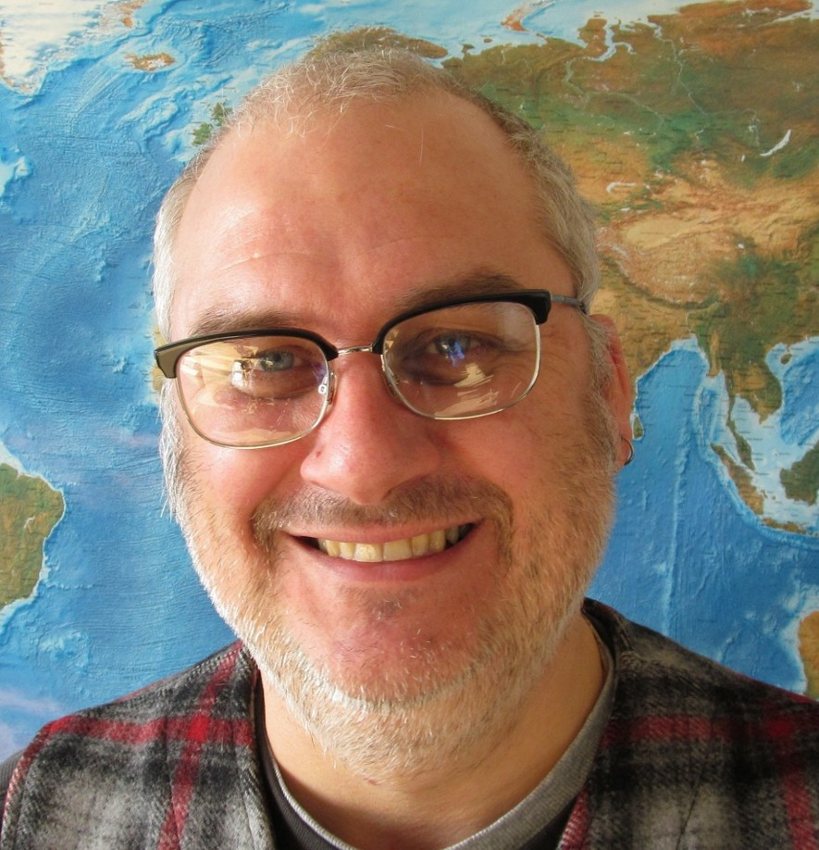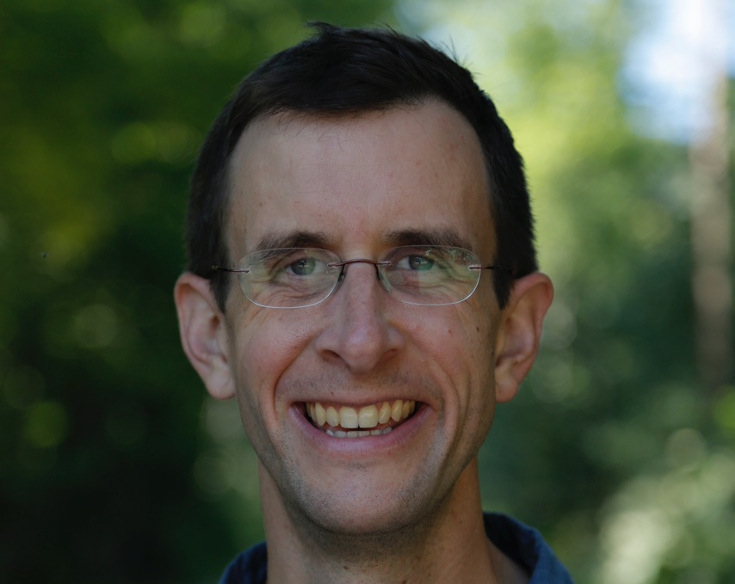Faculty Promotions
Faculty Promotions
The Executive Committee of the Corporation has approved the promotion of Michael Follows to Full Professor and David McGee to Associate Professor (effective July 2017.)
 Mick Follows seeks to understand how the interactions of physical, chemical and biological processes modulate the structure and function of marine microbial communities and regulate the oceanic cycles of carbon and nutrient elements on global and climate scales. Using idealized theory, numerical models and the analysis of observed data he and his group seek to identify the relationships of individuals and communities to their environment, connecting cellular-scale processes to global microbial community structure. In particular, through the MIT Darwin Project which he leads, his team has created a marine ecosystem model that, when initialized with many phytoplankton types whose physiological traits have been determined stochastically, results in emergent community structure and biogeography consistent with known distributions of microbes in the global oceans.
Mick Follows seeks to understand how the interactions of physical, chemical and biological processes modulate the structure and function of marine microbial communities and regulate the oceanic cycles of carbon and nutrient elements on global and climate scales. Using idealized theory, numerical models and the analysis of observed data he and his group seek to identify the relationships of individuals and communities to their environment, connecting cellular-scale processes to global microbial community structure. In particular, through the MIT Darwin Project which he leads, his team has created a marine ecosystem model that, when initialized with many phytoplankton types whose physiological traits have been determined stochastically, results in emergent community structure and biogeography consistent with known distributions of microbes in the global oceans.
Follows joined the MIT faculty in 2013 subsequently assuming a secondary appointment in Civil and Environmental Engineering. Originally from the United Kingdom, Follows holds a PhD from the School of Environmental Sciences at the University of East Anglia. He is a Fellow, American Academy of Microbiology (2013.)
 David McGee’s research focuses on understanding the atmosphere’s response to past climate changes. By documenting past changes in precipitation and winds using geochemical measurements of stalagmites, lake deposits and marine sediments and interpreting these records in the light of models and theory, he aims to offer data-based insights into the patterns, pace and magnitude of past hydroclimate changes. His primary tool is measurements of uranium-series isotopes, which provide precise uranium-thorium dates for stalagmites and lake deposits and allow reconstructions of windblown dust emission and transport using marine sediments.
David McGee’s research focuses on understanding the atmosphere’s response to past climate changes. By documenting past changes in precipitation and winds using geochemical measurements of stalagmites, lake deposits and marine sediments and interpreting these records in the light of models and theory, he aims to offer data-based insights into the patterns, pace and magnitude of past hydroclimate changes. His primary tool is measurements of uranium-series isotopes, which provide precise uranium-thorium dates for stalagmites and lake deposits and allow reconstructions of windblown dust emission and transport using marine sediments.
McGee joined the faculty in 2012 after completing a postdoctoral fellowship with a joint appointment at the University of Minnesota and the Lamont-Doherty Earth Observatory and now serves as Director of the freshman learning community Terrascope. He holds a PhD in Earth and environmental sciences from Columbia University.
Stories about Follows' and McGee's work:
New study sets oxygen-breathing limit for ocean’s hardiest organisms